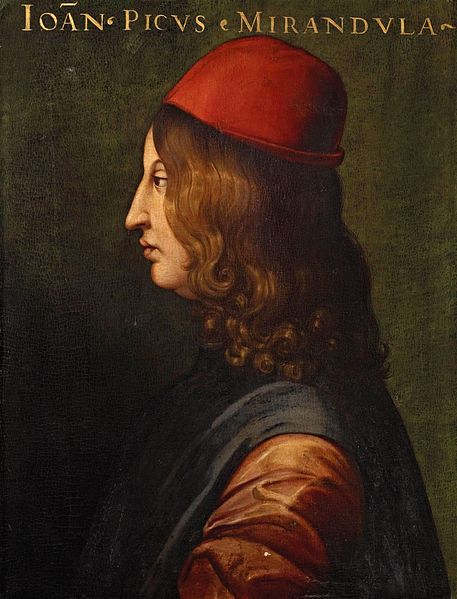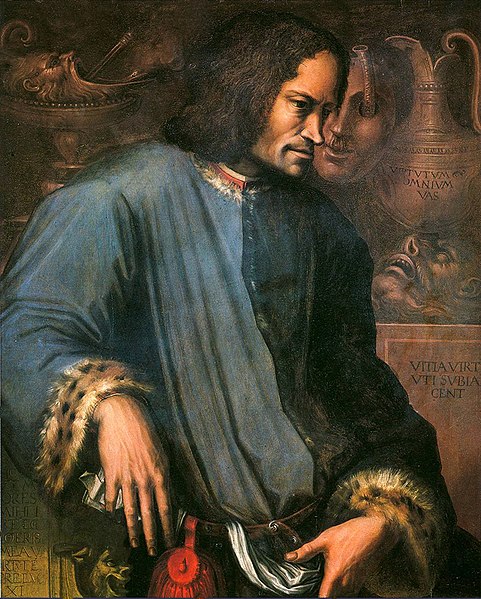Galeotto I Pico della Mirandola was an Italian condottiero and nobleman, Signore of Mirandola and Concordia. He was noted by contemporaries for his tyranny. The son of Gianfrancesco I Pico, Galeotto initially allied himself to the Duchy of Ferrara, first fighting for Duke Borso d'Este and then Ercole I d'Este, with whom he formed a strong bond. In 1486, he switched allegiance to Ludovico Sforza, Duke of Milan. He fought his brother Antonio for the Signoria of Mirandola. He was ultimately successful in the last battle, taking his brother's place in 1491, which was reaffirmed two years later. He died in 1499 and was succeeded by his son Giovanni Francesco.
Galeotto I (Palazzo Schifanoia, Ferrara)
Image: Stemma di Galeotto I Pico della Mirandola
Giovanni Francesco Maineri, The Mirandola Hours (British Library). In the lower margin are the arms of Galeotto I (at the left) and the arms of his wife, Bianca d'Este (at the right).
Tomb of Galeotto I Pico (Church of San Francesco, Mirandola)
Giovanni Pico della Mirandola
Giovanni Pico dei conti della Mirandola e della Concordia, known as Pico della Mirandola, was an Italian Renaissance nobleman and philosopher. He is famed for the events of 1486, when, at the age of 23, he proposed to defend 900 theses on religion, philosophy, natural philosophy, and magic against all comers, for which he wrote the Oration on the Dignity of Man, which has been called the "Manifesto of the Renaissance", and a key text of Renaissance humanism and of what has been called the "Hermetic Reformation". He was the founder of the tradition of Christian Kabbalah, a key tenet of early modern Western esotericism. The 900 Theses was the first printed book to be universally banned by the Church. Pico is sometimes seen as a proto-Protestant, because his 900 theses anticipated many Protestant views.
Portrait from the Uffizi Gallery, in Florence
Castle of Mirandola in 1976
The Childhood of Pico della Mirandola by Hippolyte Delaroche, 1842, Musée d'Arts de Nantes
Lorenzo de' Medici by Giorgio Vasari, c. 1533–1534








